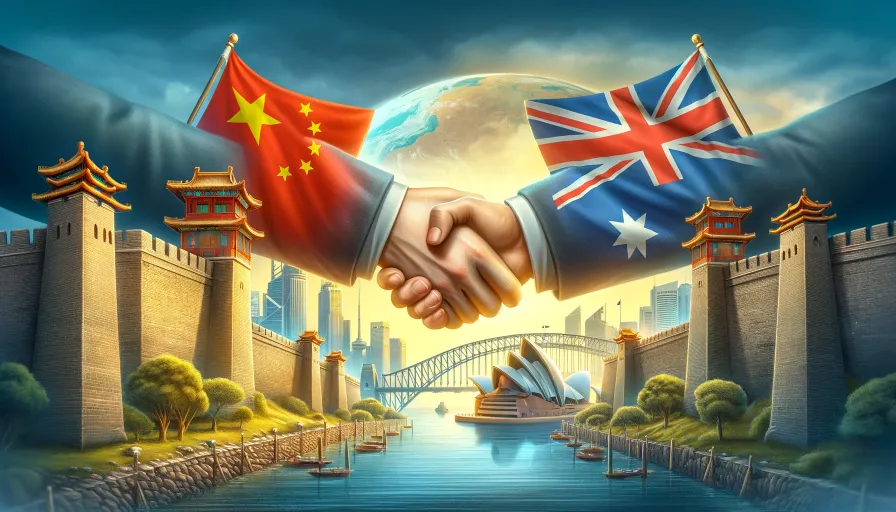After years of tension, Australia and China appear to be leaving the past behind and moving forward in strengthening the relationship between the countries.
Chinese President Xi Jinping conveyed to Australian Prime Minister Anthony Albanese the potential for their nations to evolve into “trusting partners,” as both leaders sought to adjust their relationship, which had been strained for years due to disagreements ranging from trade to human rights issues and the COVID-19 pandemic.
Historically, China and Australia have developed their relationship primarily through trade, with Beijing emerging as Canberra’s largest commercial ally. However, the relationship deteriorated when Australia, under the leadership of then-Prime Minister Scott Morrison, a member of the conservative government, raised allegations of political interference by China. Additionally, Australia’s decision to ban the tech giant Huawei citing national security concerns, along with its advocacy for an international probe into the origins of the COVID-19 pandemic, further strained bilateral ties.
On the first trip to Beijing by an Australian leader since 2016, Albanese met Xi at the Great Hall of the People on Monday.
President Xi said stable ties between China and Australia served each other’s interests and both should expand cooperation, sending a clear signal that China was ready to move on from recent tensions.
As Albanese concluded his four-day visit to China, both countries agreed it was important to keep up the momentum in their steadily warming relations, while also expanding their areas of cooperation. Both sides emphasized the complementary nature of their economic ties and sounded optimistic about exploring new areas of cooperation in climate change, renewable energy and agriculture. They also committed to maintaining their recently resumed high-level dialogues. These include annual prime minister meetings and other diplomatic, strategic and economic talks.
While Australian media coverage focused on the historic nature of the trip, as well as the importance from a trade perspective, what mattered most to China? And how was the visit covered by the media there?
Beijing certainly views the visit as a major milestone in bilateral relations. Official media coverage emphasised that the two countries have no historical issues with one another, and have previously demonstrated how a stable bilateral relationship can be mutually beneficial.
Several key points emerged from Albanese’s visit from the perspective of China.
China viewed this visit as a chance to reconnect with Australia, a significant ally of the US and a vital economic collaborator.
Acknowledging that its economic pressure tactics against the Morrison administration were ineffective, and in response to continued US efforts to limit its growth, China has been adjusting its foreign policy.
China is extending diplomatic overtures to allies and partners of the US, including major European Union nations, inviting them to China-led diplomatic endeavors. It is also engaging in high-level bilateral discussions with these countries on critical economic and political matters.
Chinese officials acknowledged that the Australian Labor Party traditionally values collaboration with global organizations, like the United Nations, and regional bodies. Consequently, they concentrated on the mutual interests of China and Australia, such as trade and climate change initiatives, while also highlighting their common regional identity as Asia-Pacific nations.
China subtly emphasized to Canberra that its alliance with the United States and involvement in security agreements like AUKUS and the Quad ought not to undermine Australia-China relations. They emphasized that these commitments should not adversely affect Chinese interests. This approach reflects China’s strategic diplomacy in balancing its regional influence while acknowledging the geopolitical realities of Australia’s international alliances.
The Chinese media did not cover the discrepancy between Beijing’s portrayal of the visit as successful and the tangible outcomes achieved, but this is no indication of how the government views the trip and Australia appears confident the two countries can continue along the path of reconciliation.
The commitment of both governments to restart and engage in dialogue is significant, even crucial, for “resetting” their relationship. These communication channels play a vital role, especially during crises, as they help manage disputes and prevent conflicts from escalating. Their importance lies not just in addressing current issues but also in building a foundation for future bilateral cooperation, understanding, and potential conflict resolution.
